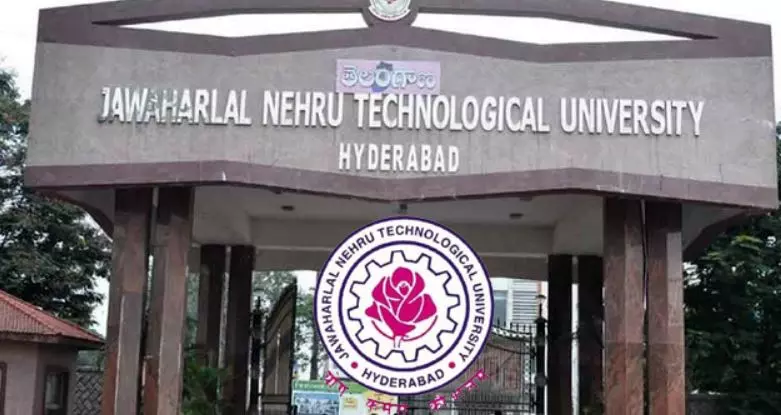JNTUH to Allow Students to Drop Low-Grade Subjects from CGPA
Students will complete 164 credits over the course of their BTech, but only the best 160 will count towards the final CGPA.

Hyderabad: Engineering students at Jawaharlal Nehru Technological University Hyderabad (JNTUH) will now be allowed to drop up to four subjects where they have low grades or have failed, from their CGPA calculation. The change, part of the newly approved R25 academic regulations, is aimed at reducing academic pressure and giving students more room to recover from setbacks.
The new regulations, which apply to students admitted from the 2025-26 academic year in non-autonomous affiliated colleges, were finalised during the joint Boards of Studies meetings on the university campus. Autonomous colleges have been encouraged to use the R25 structure as a reference.
Students will complete 164 credits over the course of their BTech, but only the best 160 will count towards the final CGPA. The four-credit drop does not apply to labs, seminars, internships, or projects.
The revised curriculum also includes a flexible exit option under the multiple entry-multiple exit model. Students can leave after two years if they have passed all courses and completed two extra credits including a six-week internship or vocational course. They may return in the third year if they choose to continue.
JNTUH has also introduced early registration for massive open online courses (MOOCs). Students can take online courses one semester in advance and earn credits later. If a MOOC is not cleared, they will be allowed to take the regular subject instead.
Four one-credit skill development courses will be introduced in the second and third years, either in a 3+1 or 2+2 domain and interdisciplinary mix, evaluated like lab subjects.
Other features of the new regulations include a computer-based test option for students who miss one mid-term exam, a new mathematics lab for hands-on problem-solving, and mandatory courses in Indian Knowledge Systems, Environmental Science, Gender Sensitisation, and Constitution of India.
Vice-Chancellor Prof. T Kishen Kumar Reddy said the curriculum was mapped to the United Nations Sustainable Development Goals, and a new course on innovation and entrepreneurship would be introduced in the second year to encourage startup culture. He presented the R25 regulations, which were discussed with faculty from IITs, NITs, state universities, affiliated colleges, alumni, and industry experts and added that their feedback will be considered in the final implementation.

